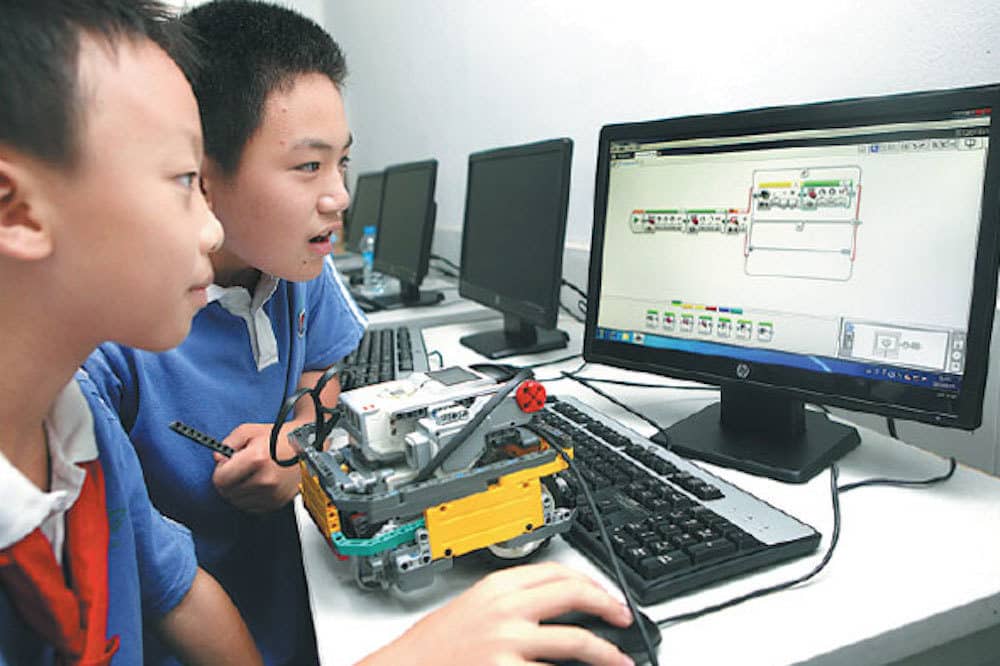by Xinqi SU / Su Xinqi
Chris Wong has transformed from a quiet student who used to blush when friends swore into one of the thousands of female frontliners battling police in Hong Kong’s democracy protests.
Born into an apolitical blue collar family on a public housing estate, Wong says she has been awakened by the tumultuous events of the last six months.
And her personal journey illustrates the key role women are playing in Hong Kong’s street protests — including at the vanguard.
“This is everyone’s fight, regardless of gender,” the 19-year-old told AFP, using a pseudonym.
Women account for some 25 percent of the 5,900 people arrested since early June while hospital admissions show a similar proportion at 28 percent.
During the weekly tear gas and rubber bullet skirmishes with police, women are a common sight among the ranks of black-clad hardcore activists dubbed “the braves”, hurling petrol bombs and rocks.
Wong describes herself as an introvert who before the protests wouldn’t dare run a red light and fretted about speaking up in class.
She joined the movement early but kept away from the frontlines, designing flyers and organising rallies.
But she became more radicalised in August, as Beijing and city leaders refused concessions and as police adopted increasingly aggressive tactics.
One afternoon she looked on helpless as riot police jumped out of a private vehicle to make arrests, her face burning from tear gas canisters disgorging smoke at her feet.
“I realised how useless I was — incapable of saving anyone — so I started to train myself,” she recalled.
Earlier this month, she was one of hundreds fighting a pitched battle against thousands of riot police at Polytechnic University in one of the most violent moments of the movement.
‘Hong Kong girl’
Her motivation is the belief that Beijing is stamping out Hong Kong’s freedoms.
“The city is in such a bad shape that there is no future and no leeway for our generation if we do not fight,” she said.
Online forums that serve as virtual command centres have filled with discussion about female participation and whether it is helping to counter certain stereotypes.
Many say their actions are shattering the “gong nui” — Hong Kong girl — caricature that portrays some women as apolitical, vacuous types, more interested in Instagramming their food and planning trips overseas.
But there is also a patriarchal strain running through much online commentary.
In the Manga-influenced flyers promoting protesters, women are often drawn as wide-eyed ingenues that need male protesters to protect them, or they are objectified as sexy, improbably-proportioned warriors.
Armed with equipment like heat resistant gloves to throw back tear gas canisters and hex keys to dismantle barriers, Wong says she found herself unbounded during protests.
“I never have the feeling that ‘girls should not do this’ and I do not care about social expectations,” she said.
Stereotypes of female “weakness”, she adds, can help.
“It allows me more flexibility to change roles, for example, from a frontliner, to an ordinary passer-by who is actually scouting police cordons,” she said.
Susanne Choi, a gender studies scholar at the Chinese University of Hong Kong, has researched female participation in recent Hong Kong protests.
“The leaderless and decentralised nature of the movement allows women — and basically every one — to take up a role according to their will and capabilities,” Choi told AFP.
Cantonese cursing
But she does not see much evidence of the protests sparking a feminist awakening.
“Under the influence of conservative thinking and a misperception that Hong Kong has reached gender equality, many female participants tend to trivialise the inequality in protests,” she added.
Wong says she and many of her fellow protesters are fearful of sexual assault.
A teenager represented by a prominent local rights lawyer has alleged she had an abortion after officers gang raped her in a police station in September.
The incident did not take place on a day that there were rallies, but the allegations have gone viral on protest forums at a time when mistrust towards the police has skyrocketed. Police say they are investigating.
The Association Concerning Sexual Violence Against Women says it has also documented some cases of sexual harrassment, assault and rape at protests.
And with the city deeply polarised, misogynist insults abound, aided by Cantonese boasting a colourful lexicon of swear words.
Police can often be heard calling female protesters “prostitutes” while activists routinely hurl profanities about officers’ wives and mothers.
Wong, who once bristled at cussing, shrugs it off.
“I don’t find this particularly offensive as it’s part of the reaction when enemies are standing face to face,” Wong said.
“Besides, it seems the officers get more irritated than we do.”
– AFP






